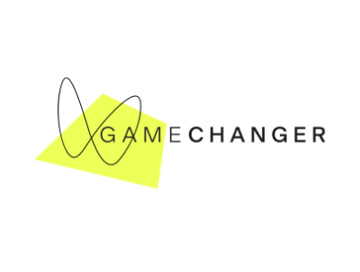Food for Thought No. 1
Insights on how we can succeed in a remote work environment from Adam Grant, the future of work, and resiliency in crisis.
Hi,
Here is your weekly GC Food for Thought newsletter - curated insights to help you thrive in a world grappling with uncertainty and exponential change.
Every Sunday this summer, you'll receive GC's 3-2-1 newsletter with 3 ideas to explore, 2 things to read, and one question for you.
Happy long weekend to all.
Gamechanger Sessions No. 1
.
Our very first guest was Adam Grant, NY Times Best-selling Author and UPenn Wharton Professor, who shared great insights on our new remote work/life norm.
After many months of virtual work/life, we all recognize just how much harder it is to foster new connections virtually. Adam shared 3 great ways to build rapid high-quality connections with others — especially with people we don’t know yet.
Self-disclosure: share something about yourself that is personal or unusual.
Show curiosity in others: ask questions that encourage the person you’re interacting with to open up.
Find uncommon commonalities: identify things that you share that are rare — like if you met somebody who happened to be from your hometown.
Adam’s work is more relevant than ever - He shared great insights on topics like encouraging 'pronoia' - a giving culture, setting boundaries to avoid burnout, how to be more productive with our attention, and how to maintain trust in a virtual world...
Watch the full session. Or, if you're on a time crunch, watch the key session theme clips or read GC's deep dive insights from Adam’s session.
EXPLORE
.
I. The antidote to paranoia in the workplace.
There is a paranoia that causes unnecessary stress which compromises the culture of giving. The antidote to this? Encouraging “pronoia”: the delusional belief that other people are plotting your well-being. Pronoia means suspecting others are going behind your back and saying extremely nice things about you."
- Adam Grant on GC's gamechanging insights #1.
.
II. The upskilling model of work and learning.
"The world of work is changing faster than ever before. The way we train folks for that future is changing: from long-term learning loops (degrees) to shorter programs focused on skills. This is the upskilling model of work and learning."
- Alberto Arenaza on the upskilling marketplace.
III. How science can fix remote work.
"If you're working from home, the pandemic has extended the average work day by 2-3 hours. Now is the ideal time to reverse that trend by testing out 6-hour work days or 4-day work weeks. By freeing up attention and energy, less time can mean more quality.”
- Adam Grant on how science can fix remote work.
READ
.
I. On resilience gained through crises:
“No matter how horrific the disaster, no matter how damaged our psyches, we wounded humans always bounce back.”
- The Atlantic on post traumatic stress growth vs disorder.
.
II. What we gain and lose in working from home:
(1) Work days are 10-20% longer (2) Best predictor of adaptation isn't introversion, but being agreeable and emotionally stable. (3) Communication went up 40% with strong ties but down 10% with weak ties.
- HBR on the implications of working without an office.
REFLECT
I.
“If you define success solely in terms of gaining wealth, achievement, or influence, what you often lose is freedom. One of the greatest accomplishments in life is earning the freedom to choose how you spend your time. No currency is more valuable—or more scarce—than autonomy.” - Adam Grant
How do you define success?
Thanks for reading. See you next weekend.
Best,
Candice
—
P.S. You can watch all previous Gamechanger sessions and see highlights on our website. We'll land in your inbox 1x a week. No spam, we promise.
Enjoyed this read? Please share it with your network:
Hit reply and say hi or leave us a comment! Let us know how we can offer more value to you in these newsletters and our content.
We’d love your feedback.



